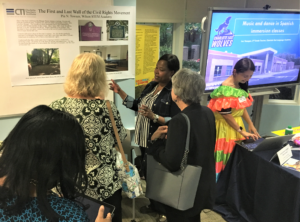Jedidiah Gist-Anderson, History, West Charlotte High School
Final Unit (PDF) Implementing Common Core Standards (PDF)
200 Word Synopsis
History is defined as the study of people, places and events over a certain period of time; however, as history changes over time, leadership styles and people that step into prominent roles do not. This unit primary focus is to identify the unique skill sets of African Americans from 1829-1926 that were able to demonstrate these talents to captivate the nation’s attention. Students will be afforded the opportunity within certain chapters to scrutinize and analyze critically, those figures such as Frederick Douglas, Booker T. Washington and W.E.B. Dubois that were able to stand in the forefront of our community and lead. As much in the content we glorify these figures in our curriculum and with the celebration of Black History Month, the students will also look at their shortcomings, failures and deficiencies and discuss the culmination of achievements, failures and setbacks that developed their leadership skills. The second fold of this dynamic unit will look at the lesser known activists and abolitionists such as Mary Church Terrell and Dr. Carter G. Woodson who developed their niche and leadership skills on more intimate level within the community. Students will examine the controversies and disputes that individual like them confronted regularly throughout their careers from within our community.










 Home
Home